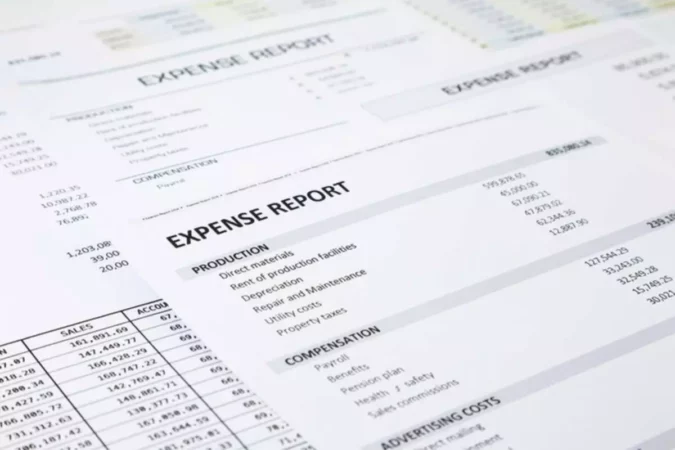Businesses sometimes seek the help of independent contractors. Hiring a permanent employee can be expensive. In some cases, it isn’t necessary to have an occupation in the company if the job isn’t permanent. In such cases, using the services of an independent contractor is the best possible solution.
But businesses and independent contractors should keep in mind that they have to file tax forms to the IRS. Study the article to learn more about forms a business owner and an independent contractor need to file. The article is focused on tax forms, schedules, deadlines, and other important details related to taxes.
An Independent Contractor Definition
The IRS, or the Internal Revenue Service, defines an independent contractor as a type of worker that provides their services to a business due to a signed contract.
You can say that they are self-employed workers, or rather business partners, but not permanent employees. For example, a company may have a position of a web designer, but they may also use the services of an independent contractor who provides web design services. It’s more convenient for a business to use the services of an independent contractor when they don’t need the services permanently.
An important thing to note is that independent contractors don’t use the benefits provided by the company as employees do. Meaning, a business owner doesn’t have to withhold taxes from a paycheck of a contractor, as in the case with employees.
Payment of an Independent Contractor
If you are a regular employee, you know that you get a paycheck with your salary, but with withheld taxes. An employer withholds taxes from your salary to pay:
- state
- federal
- Medicare
- Social Security taxes.
It’s completely different if you are an independent contractor.
When you do the job as a contractor, you get a paycheck, but the client doesn’t withhold taxes. It is your job as a contractor to file tax forms since you are self-employed. There are different tax forms to file.
Tax Forms for Independent Contractors
Independent contractors are to file tax forms before the deadline. If you are a contractor and during the year you earn $400 and more, you must file one of the forms mentioned below. The form type depends on your revenue, and sometimes you will have to submit the tax form even if you get less than $400 annually.
1099 Form
As it was mentioned, an employee doesn’t need to file tax forms since it’s the job of their employers. Instead, employees get a W-2 form that shows all the deductions calculated from their salaries.
An independent contractor gets a 1099 form. A business that you worked for as a contractor has to send you a 1099 form whenever they paid you $600 or more. In a perfect world, if you add up all the received forms, it’s your gross revenue for the past year.
But in some cases, businesses don’t send you 1099 forms, specifically, when they pay less than $600. In this case, you have to be completely transparent about your income and report to IRS. It’s essential to keep track of all your gains through the year rather than depend on a business to send a 1099 form when it’s due.
W-9 Form
If you are a business owner and you are to pay an independent contractor, you have to ask this person to complete form W-9. This form is mainly used to get the Taxpayer Identification Number for future references. A company should keep this form for four years in case of the IRS audit.
1096 Form
1096 form is the one that a business has to file to IRS. It states all the informational returns by a company. If you are a business owner, you don’t have to send it to a contractor, you submit it only to the IRS.
All businesses that complete 1099 forms also have to submit the 1096 form. The form should be filed both in paper and electronic forms when it’s due.
The 1096 form, just like any other form, should be submitted before the deadline to avoid penalties. A business files this form when they file 1099-NEC forms for all non-employees — by January 31, 2021, for the next tax year.
1040 Form
A 1040 form is the one an independent contractor has to use to submit taxes. The form depends on the information from the schedules described below in the article.
Schedule C (C-EZ), SE
A self-employed person has to use a Schedule C to calculate business expenses, gains, or losses for the year, and file this info to the IRS.
Note, this document includes your expenses as a self-employed person. If you prefer to work as an independent contractor, it means that you are self-employed. This means that you can reduce your tax burden by filing for a refund on your business expenses. This is called a claimable tax deduction.
Depending on a business that you have, you can deduct the expenses on your car if you use one. For example, if you are a lawyer or a real estate agent, you use your car for business purposes. There are deductible expenses you can claim to reduce the tax burden.
But note, you have to keep track of your business expenses and record them properly. If one day the IRS decides to ask you questions about your expenses, you might get in trouble for not keeping track of your expenses properly.
You have to file a Schedule SE form to calculate the taxes you have to pay for Social Security and Medicare. The calculations (gains, losses, expenses) from Schedule C will help you figure out how much you have to pay.
Requirements for Contractor Tax Forms
There are general requirements for filing tax forms for independent contractors as described below. But some states also have other requirements. Depending on the state where you have a business, you need to make sure you meet all the requirements. As for the general requirements, they are as follows:
- The number of employer account.
- TIN (you can get it from the contractor by asking to fill the W-9 form).
- The beginning of a contract as well as its expiration date.
- The payment for the job.
There could be variations depending on different states.
Penalties for Failing to Submit Forms
Depending on the form you need to file, you have a certain period during which you should submit it. If you fail to put a form when it’s due, you will get a penalty. The sum depends on the delay. You get a penalty for each form you fail to submit, so it may be a big amount of money for a business.
The 1099-NEC form must be submitted by January 31 to the IRS, and the independent contractor since they have to fill forms too. If a business owner fails to submit the form by the deadline, they may pay from $50 to $550 per form. For small businesses, the maximum penalty for all forms is $1,130,500.
A Tax Form to Submit by a Subcontractor
As you may have figured it out, a business isn’t responsible to file a 1099-NEC form for a subcontractor hired by an independent contractor. In this case, it’s the job of an independent contractor to file the 1099 form to the IRS and the subcontractor.
Meaning, if you are an independent contractor and you need extra help, you can hire a subcontractor. If you pay more than $600, you have to file the 1099-NEC form.
As a subcontractor, you have to file:
- 1040
- Schedule C
- Schedule SE forms.
As an independent contractor, you will need the same details as the business that hires you, for instance, the account number, TIN, etc.
How should an Independent Contractor Pay Taxes?
If you are filing an annual tax return, you can utilize a 1040-ES form to estimate the taxes for the next year. You need to file this form since if your potential income for the next year is more than $1,000 in taxes, you are responsible for paying tax payments every quarter of the tax year. Meaning, you have to pay taxes every April, June, September, and January during the next year.
You can use either paper forms to file taxes, or you could do that online. Make sure you make no mistakes when calculating how much in taxes you have to pay. If you file taxes incorrectly, you will pay less than is required before filing an annual tax return form for the next year. In such a case, you will have to pay a penalty.
To not get charged for a mistake, you can pay 90% of the amount you owe to the state every quarter of the current tax year. Or you can opt for paying 100% of the taxes every quarter of the previous tax year.
Naturally, if you overpay in taxes, you can ask for a refund. You get the refund when you file for the annual tax return. If it seems like too much of a difficulty to file an annual tax return, you can read carefully the instructions on the forms or you can always opt for using professional help.
Whether you are a contractor, subcontractor, or business owner, it’s important to file all forms when it’s due. If you fail to do so, you will be penalized for each form depending on the delay.
The Bottom Line
When it comes to tax forms, it is different for each party. Regular employees get a form that clearly states what taxes were deducted from their paychecks by employers. But the situation is completely different when it comes to independent contractors.
A business owner is a client of the independent contractor, and it’s not the responsibility of a business owner to deduce taxes from the paycheck of an independent contractor. It’s the task of the contractor to submit tax forms.
The business owner has to submit a 1099 form to both the IRS and the individual contractor. That’s why it’s so important to keep records of all transactions and payments. It’s a tedious job, so contractors and business owners can use professional help. It’s essential to fill forms before the deadline to avoid penalties.
FAQ
How to file taxes as an independent contractor?
You have to file taxes if your revenue from being self-employed is $400 and more. In such a case, it is important to fill form 1040 and submit a Schedule C to be able to calculate net gains and losses. If you have less than $5,000 as expenses for business, submit a Schedule C-EZ.
What forms to use for independent contractors?
If you are a business owner, you have to submit a 1099-NEC form to the IRS. You need to do it whenever you pay an independent contractor $600 or more. It’s important since contractors rely on your business submitting this form so they can file their taxes.
What is the difference between a self-employed individual and a contractor?
An independent contractor is a self-employed individual. Meaning, being an independent contractor is to be self-employed. Instead of working for an employer, you work for yourself. But there is a tiny difference between being self-employed and being an independent contractor.
You can be self-employed, but not necessarily an independent contractor. An independent contractor usually works due to a contract. It can be a contract to do a project for a company or to provide services/materials for a certain period. Self-employment doesn’t always require working due to a contract.
What form an independent contractor gets — W2 or 1099?
If a person is an independent contractor, they get a 1099 form (NEC). If someone is an employee (permanent worker in a company), they get a W-2. Permanent employees get paychecks with already calculated taxes, an employer is responsible to pay the tax for an employee to the government.
As a business owner, do you have to file a form for an independent contractor?
Yes, you have to file a form and do it by the end of the deadline to avoid penalties. It’s essential to submit the form to the IRS and an independent contractor, and then submit it electronically. Without the 1099 form, independent contractors won’t be able to file their taxes.



















